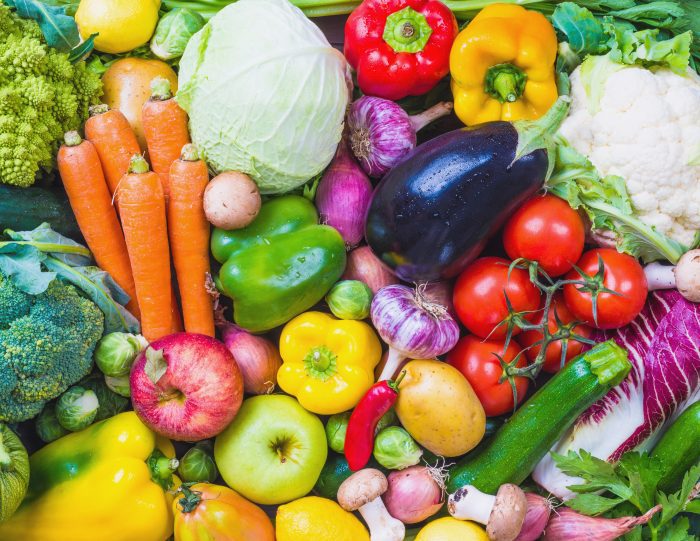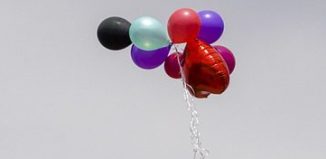Medical Compass: What is your kidney disease risk?
Dietary changes can help control or reverse chronic kidney disease
By David Dunaief, M.D.

Your kidneys are workhorses; they perform an array of critical functions for you. Primarily, they filter waste and fluid from your body and maintain your blood’s health. They also help control your blood pressure, make red blood cells and vitamin D, and control your body’s acid levels.
When your kidney function degrades, it can lead to hypertension or cardiovascular problems and it may require dialysis or a kidney transplant in later stages. For the best outcomes, it’s critical to identify chronic kidney disease (CKD) early and adopt techniques to stop its advance. However, of the estimated 37 million U.S. adults who have CKD, as many as 9 in 10 are not aware they have it (1).
One of the challenges with identifying early-stage CKD is that symptoms are not obvious and can be overlooked. Among them are high blood pressure, hand or feet swelling, urinary tract infections, and blood in your urine (2).
Fortunately, there are simple tests, such as a basic metabolic panel and a urinalysis, that will indicate whether you may have mild CKD. These indices for kidney function include an estimated glomerular filtration rate (eGFR), creatinine level and protein in the urine. eGFR is a calculation and, while the other two indices have varying ranges, depending on the laboratory used, a patient with an eGFR of 30 to 59 is considered to have mild disease. The eGFR and the kidney function are inversely related, meaning as eGFR declines, the severity of CKD increases.
What can be done to stem early-stage CKD, before complications occur? There are several studies that have looked at lifestyle modifications and their impacts on its prevention, treatment and reversal.
How do other medical issues affect your kidneys?
Among the greatest risks for your kidneys are uncontrolled diseases and medical disorders, such as diabetes and hypertension (1). If you have – or are at risk for – diabetes, be sure to control your blood sugar levels to limit kidney damage. Similarly, if you currently have hypertension, controlling it will put less stress on your kidneys.
For these diseases, it’s crucial that you have your kidney function tested at least once a year.
In addition, obesity and smoking have been identified as risk factors and can be managed by making lifestyle changes to reduce your risk.
Can diet help protect your kidneys?
Fruits and vegetables may play a role in helping patients with CKD. In a one-year study with 77 patients, results showed that fruits and vegetables work as well as sodium bicarbonate in improving kidney function by reducing metabolic acidosis levels (3).
What is the significance of metabolic acidosis? It means that body fluids become acidic, and it is associated with CKD. The authors concluded that both sodium bicarbonate and a diet including fruits and vegetables were renoprotective, helping to protect the kidneys from further damage in patients with CKD. Alkali diets are primarily plant-based, although not necessarily vegetarian or vegan. Animal products tend to cause an acidic environment.
In the Nurses’ Health Study, results show that animal fat, red meat and sodium all negatively impact kidney function (4). The risk of protein in the urine, a potential indicator of CKD, increased by 72 percent in those participants who consumed the highest amounts of animal fat compared to the lowest, and by 51 percent in those who ate red meat at least twice a week. With higher amounts of sodium, there was a 52 percent increased risk of having lower levels of eGFR.
The most interesting part with sodium was that the difference between higher mean consumption and the lower mean consumption was not that large, 2.4 grams compared to 1.7 grams. In other words, a difference of approximately a quarter-teaspoon of sodium was responsible for the decrease in kidney function.
The National Kidney Foundation recommends diets that are higher in fruit and vegetable content and lower in animal protein, including the Dietary Approaches to Stop Hypertension (DASH) diet and plant-based diets (5).
In my practice, when CKD patients follow a vegetable-rich, nutrient-dense diet, there are substantial improvements in kidney functioning. For instance, for one patient, his baseline eGFR was 54. After one month of lifestyle modifications, his eGFR improved by 9 points to 63, which is a return to “normal” functioning of the kidney. Note that this is anecdotal, not a study.
What are our takeaways?
It is important to have your kidney function checked with mainstream tests. If the levels are low, you should address the issue through medications and lifestyle modifications to manage and reverse early-stage CKD. If you have common risk factors, such as diabetes, smoking, obesity or high blood pressure, or if you are over 60 years old, talk to your doctor about testing.
Don’t wait until symptoms and complications occur. In my experience, it is much easier to treat and reverse a disease in its earlier stages, and CKD is no exception.
References:
(1) CDC.gov. (2) kidneyfund.org. (3) Clin J Am Soc Nephrol. 2013;8:371-381. (4) Clin J Am Soc Nephrol. 2010; 5:836-843. (5) kidney.org.
Dr. David Dunaief is a speaker, author and local lifestyle medicine physician focusing on the integration of medicine, nutrition, fitness and stress management. For further information, visit www.medicalcompassmd.com or consult your personal physician.







